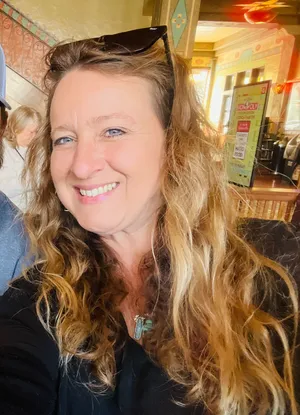By Lilly Rocha
Despite plans for a full reopening, recovery for San Francisco’s restaurant industry will be a slow process — especially for Latino-owned restaurants and communities disproportionately impacted by COVID-19.
As CEO of the Latino Restaurant Association, I know many Latino restaurant owners are just one unexpected cost away from losing everything. That’s why we’re voicing our opposition to San Francisco Supervisor Aaron Peskin’s request to keep the temporary COVID-19 emergency cap on food delivery fees — enacted at the height of the pandemic — in perpetuity.
While it may seem counterintuitive that a restaurant association is opposing lower fees for restaurants, logic and experience justifies our opposition.
Simply put, in San Francisco and other cities that have imposed these arbitrary fee caps, consumer costs have risen to keep delivery services viable, which results in fewer customers and lost business for restaurants.
Delivery services in Latino communities have been a tremendous tool in keeping our restaurants open and our workers and neighborhoods safe. For example, according to a DoorDash survey, restaurants on the platform were eight times more likely to stay in business. Our restaurants voluntarily sign up for delivery services because they grant flexibility in selecting services — and fees — best suited to our business needs.
Many Latino-owned restaurants are small and family-run, without the resources to promote our businesses on our own. A Stanford study found that 70% of Latino entrepreneurs rely on personal savings when starting a business. Delivery service platforms offer a variety of services to help us market and expand our customer base. This customization sets up our businesses for success in an increasingly competitive industry while paying for the services we actually need.
Meanwhile, for our customers and neighbors, the fees keep delivery affordable and accessible while providing fair pay for drivers. By capping the fees restaurants are able to pay, Pesksin’s proposal upsets a delicate cost balance — with the remaining balance of fees falling entirely on customers to access safe, reliable deliveries.
We’ve already seen costs increase for consumers in cities that instituted even just temporary fee caps, from Oakland to Jersey City, with increases of $2-$3 an order. For example, in St. Louis orders decreased in volume by 4% after caps were instituted there, and 7% in Philadelphia, according to reports from DoorDash. For many of our families, cost increases as small as a few dollars can make food deliveries too expensive. By pricing out some Latino families who are still fatigued by the past year and, in some communities, lagging the rest of the state in vaccination rates, the state would be unfairly penalizing some of our most vulnerable neighborhoods.
Food service research firms like Technomic are confirming what we have been hearing from restaurant owners in our community: 75% of restaurants report they would have had to close their business without app-based delivery, and 81% would have had to lay off staff. The reality is there is no way our members could deliver to as many customers without app-based delivery services because we do not have the staff or financial resources to do it.
As San Francisco restaurants inch their way back from the edge of disaster, the last thing they need are policies that limit the customers they can reach. Other emergency COVID restrictions in San Francisco are expected to come to an end soon, so should this failed policy.
An unfortunate amount of the Bay Area’s best restaurants have already been forced to close, with more closures each month. Let’s not make it harder for the restaurant industry. On behalf of Latino-owned restaurants and all restaurants, we encourage the San Francisco Board of Supervisors to reject this flawed policy.
Lilly Rocha is the CEO of the Latino Restaurant Association, which promotes, supports and educates restaurateurs and small business owners to ensure the equitable economic growth of the Latino restaurant sector.
Read the original article in full ↗

The Latest News

Opinion
I’m an Instacart driver: California Supreme Court must protect my job
By Stephanie Whitfield It may sound dramatic to say that app-based driving saved my life, [...] Read more
News
As Prop. 22 heads to California Supreme Court, support doesn’t break along ideological lines
By Bob Egelko Proposition 22, the 2020 ballot initiative sponsored by Uber and Lyft that [...] Read more